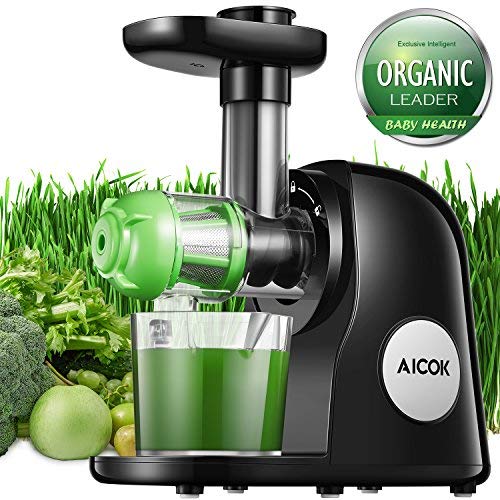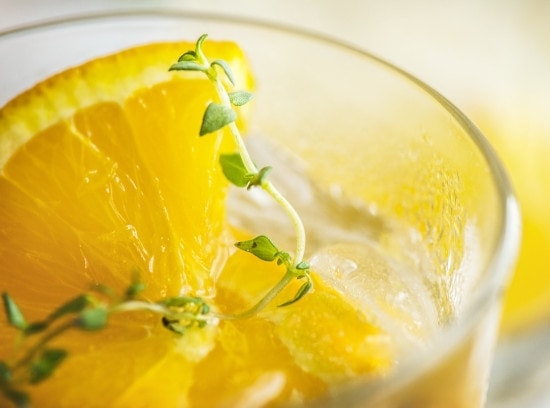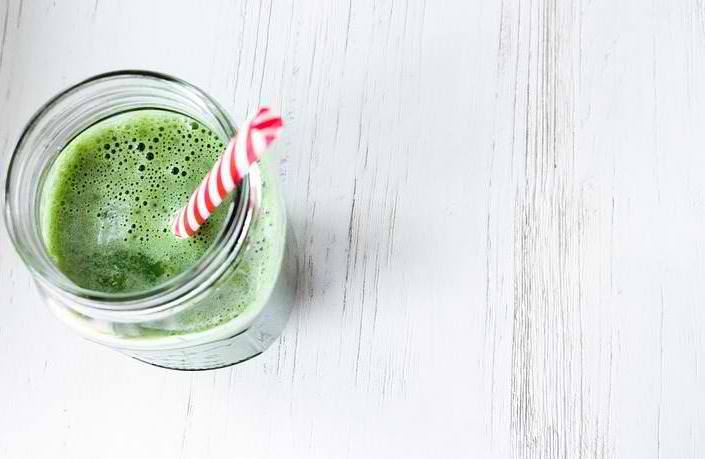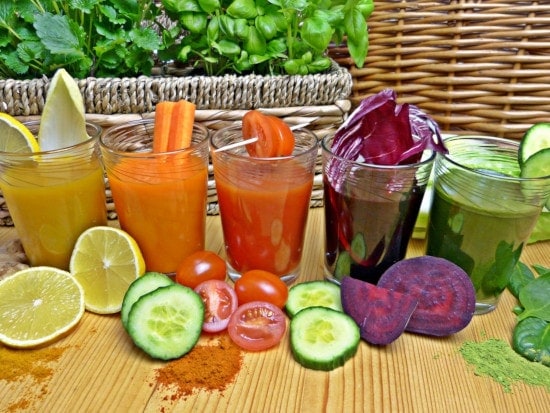7 Common Juicing Mistakes that You Are Most Likely Making
-
Nicole Wells
- Last updated:

You probably started juicing for the many health benefits it entails. But if you’re not careful, you could end up hindering your results or even causing yourself harm. It’s important to understand the pitfalls of juicing so you can avoid them and get the most health benefits. Check out our brief list below. If you’re practicing any of these frown-worthy steps, it’s time to kick your bad habit to the curb.
Top 7 Juicing Mistakes to Avoid
1. Using a Centrifugal Juicer
A centrifugal juicer quickly pulls the pulp apart and extracts the juice, which will work, but you won’t get an optimal amount of juice from your produce. A cold press (or “slow masticating”) juicer works more slowly to extract the most juice, and it won’t break down the nutrients too quickly. Your juice will also last longer in the fridge. If you can swing it, a cold press juicer is your best bet. We recommend the Aicok Slow Masticating Juicer for best results.
2. Not Drinking It Fresh
You’ve probably noticed sliced fruit begins to turn brown and degrade quickly. This is due to oxidation, which is the process of natural chemicals breaking down as they are exposed to oxygen. What this means for your juice is that the fresher it is when you drink it, the higher the nutritional value. You can store juice from a centrifugal machine for about a full day in the fridge, and cold-pressed juice will last around three days. Read How Long Does Fresh Juice Last? for more information.
3. Forgetting To Go Organic
This may be preaching to the choir if you’re already a health-conscious juicer, but it’s worth repeating. Organic produce is always your best bet for healthy eating. This goes for juice, too. Avoiding chemical pesticides in your diet will spare your endocrine system much unnecessary stress, helping you to manage your weight and help prevent chronic illness. It also tastes better. Anyone who eats organic produce regularly will tell you it’s far superior in quality and flavor.
4. Too Much Sugar
Fruit juice tastes amazing, and you may be tempted to drink several large glasses of freshly juiced fruit every day. While the vitamin and fiber content of fruit juice is beneficial, it’s also packed with fructose. When fructose is locked inside the cells of the fruit’s flesh, it doesn’t affect your body as much. Once you extract the juice, however, you’ve produced a simple carbohydrate that will spike your blood sugar. Too much fructose can lead to issues like obesity and diabetes, so don’t go crazy with the fruit.
5. Not Slowing Down

Your juice may be delicious, but whatever you do, don’t slam it down. Your body needs time to digest the nutrient-dense contents of your cup. If you don’t take your time and sip leisurely, you could end up with a stomachache, or worse, vomiting. Slow down, enjoy the flavor, and allow your body to soak up all those healthy vitamins naturally.
6. Juicing On a Full Stomach
While you shouldn’t swap a meal for a glass of juice, avoid eating a meal at the same time. The contents of your stomach can dilute the nutrient absorption you would get on an empty stomach. For best results, try downing a leisurely cup of juice before breakfast and give yourself about half an hour to an hour to digest.
7. Relying On the Same Old Thing
Yes, fruits and vegetables are healthy, and yes, they’re stuffed with vital nutrition, but it’s possible to get too much of a good thing. Keep in mind that every food is a potential poison if over-consumed, even water. To keep from reaching toxic levels of certain vitamins and nutrients, it’s best to shake things up each time you juice. Try new fruits and vegetables or different flavor combinations each time you fire up the juicer, and you’ll keep your dietary intake varied enough to stay healthy and away from the danger zone.
Conclusion
Juicing isn’t an exact science, but following the tips above will help you get the most from your new endeavor. Remember to avoid chemical pesticides by choosing organic produce, take it slowly, and mind when you’re consuming your juice for best results. Above all, don’t let the warnings above deter you from deep-diving into your juicing hobby. There’s more to be gained from healthy juice than there are things to worry about.
You might also like:
- Smoothie Hack: How to Freeze Your Spinach for Smoothies!
- How to Juice Without a Juicer (Tips & Tricks)
Feature Image Credit: Asier Romero, Shutterstock
Contents








